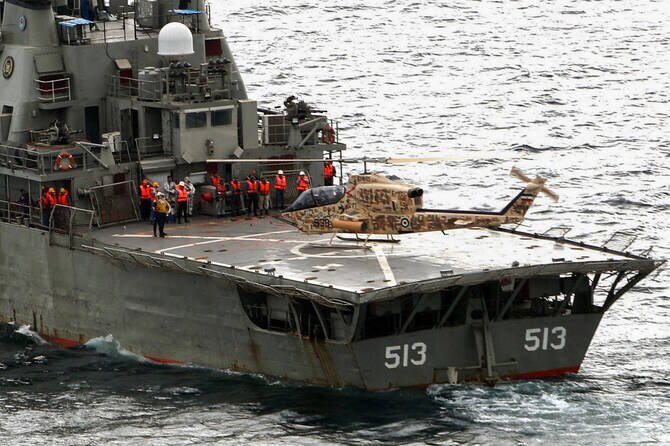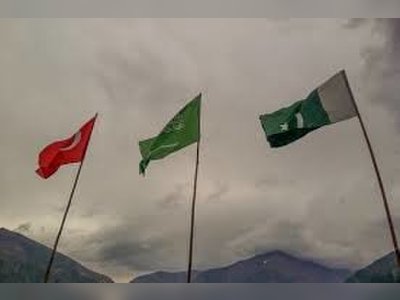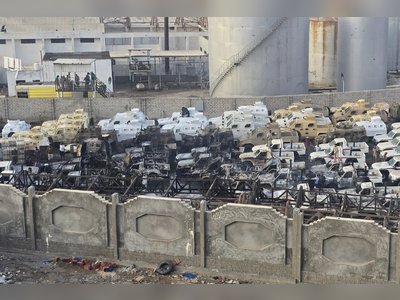
Why the World Can't Afford a Blockade in the Strait of Hormuz
Global Energy Markets on Edge as Threats of Maritime Blockade Loom
As the conflict between Israel and Iran intensifies, attention has turned to the strategic waterway known as the Strait of Hormuz.
This narrow, 33-kilometer-wide stretch of water separating Oman and Iran carries a fifth of the world's daily oil supply.
Analysts warn that further escalation could put this vital shipping route at risk if Iran imposes a blockade or attacks vessels.
With hundreds already killed in the daily exchanges of fire since June 13, global energy markets are on edge over potential disruptions that could send prices skyrocketing and destabilize economies.
The Strait of Hormuz is crucial because no real alternatives exist for transporting oil.
Most Gulf oil cannot be rerouted without massive delays, and it is the only deep-water route capable of handling the world's largest crude tankers.
According to the US Energy Information Administration, 20 million barrels of oil pass through the strait daily, along with one-fifth of global liquefied natural gas trade.
The closure of this artery would trigger a chain reaction that the global economy is not prepared for.
The international community remains deeply concerned about potential threats to the stability of global energy markets, particularly as Iran has historically threatened to close the Strait of Hormuz.
While these threats have never been acted upon, experts caution against underestimating the dangerous reality of escalating tensions in this critical corridor.
The risks of a maritime blockade are dangerously real, and shutting down the strait would ignite a global oil shock with far-reaching consequences for economies worldwide.
The potential effects of such an event cannot be overstated.
If the Strait of Hormuz were blocked, global shipping costs would explode as tankers took longer routes around Africa, crippling trade routes and choking energy supplies.
Vulnerable economies like Lebanon would face complete electricity blackouts if disruptions occurred.
High oil prices would also force central banks worldwide to grapple with whether to lower or raise interest rates.
The crisis is not merely about oil, but the fragile balance that keeps markets stable and societies moving.
As tensions rise, it remains unclear when peace will be restored and the Strait of Hormuz will remain open for business.
This narrow, 33-kilometer-wide stretch of water separating Oman and Iran carries a fifth of the world's daily oil supply.
Analysts warn that further escalation could put this vital shipping route at risk if Iran imposes a blockade or attacks vessels.
With hundreds already killed in the daily exchanges of fire since June 13, global energy markets are on edge over potential disruptions that could send prices skyrocketing and destabilize economies.
The Strait of Hormuz is crucial because no real alternatives exist for transporting oil.
Most Gulf oil cannot be rerouted without massive delays, and it is the only deep-water route capable of handling the world's largest crude tankers.
According to the US Energy Information Administration, 20 million barrels of oil pass through the strait daily, along with one-fifth of global liquefied natural gas trade.
The closure of this artery would trigger a chain reaction that the global economy is not prepared for.
The international community remains deeply concerned about potential threats to the stability of global energy markets, particularly as Iran has historically threatened to close the Strait of Hormuz.
While these threats have never been acted upon, experts caution against underestimating the dangerous reality of escalating tensions in this critical corridor.
The risks of a maritime blockade are dangerously real, and shutting down the strait would ignite a global oil shock with far-reaching consequences for economies worldwide.
The potential effects of such an event cannot be overstated.
If the Strait of Hormuz were blocked, global shipping costs would explode as tankers took longer routes around Africa, crippling trade routes and choking energy supplies.
Vulnerable economies like Lebanon would face complete electricity blackouts if disruptions occurred.
High oil prices would also force central banks worldwide to grapple with whether to lower or raise interest rates.
The crisis is not merely about oil, but the fragile balance that keeps markets stable and societies moving.
As tensions rise, it remains unclear when peace will be restored and the Strait of Hormuz will remain open for business.











